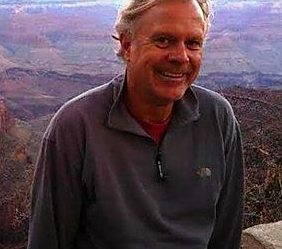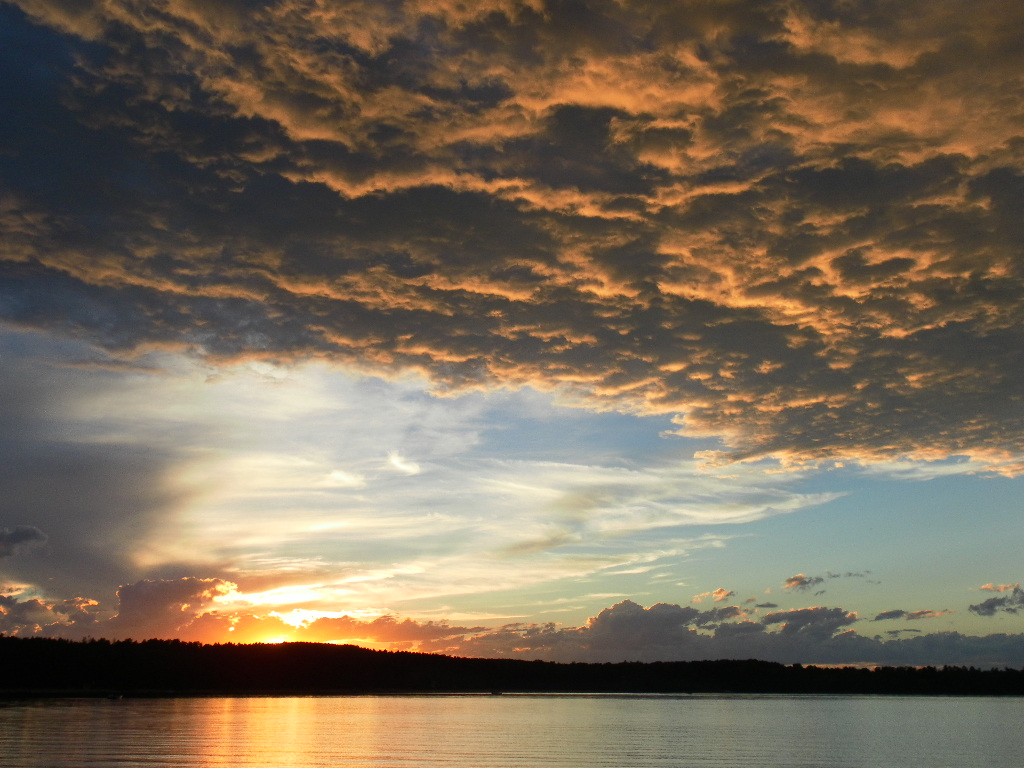ZPI encourages reflections from retreat participants, staff, community members & others touched by our work and doing similar work from around the world, as part of the practice of bearing witness. Peter Pierson, a writer and a participant in the Native American Bearing Witness Plunge in 2019, offers us another reflective writing piece, applying the three tenets to his intimate experience and reflections of our modern times. You may read the previous article he wrote for the ZPI Journal HERE.
“You must first be on the path, before you can turn
and walk into the wild.”
Gary Snyder, The Practice of the Wild
These days shine a blinding light on the abject failure of so many of our institutions, our systems, and the paradigms that grant them power in our lives. Rarely, if ever, have the inequalities of opportunity, our discriminatory access to healthcare, and ineffectual profit-driven commodity supply chains been so evident as fruitless and unjust. The COVID-19 virus is disproportionately affecting people of color, people who lack access to healthcare, people who cannot afford the luxury of isolating themselves in the comforts of home and practicing social distancing. Countless gallons and pounds of perishable dairy and vegetable products are being destroyed because distribution systems seem to be too inflexible to adapt and get these food resources to those in need.
These issues are not new. We have not been blind to them over the years. We’ve been able to distract ourselves and fail to address them “not because we’re terrible people or because we don’t care about fixing them,” asserts writer/filmmaker Julio Vincent Gambuto, “but because we don’t have time.” Now, amidst the tragedies and horrors of a pandemic that has affected every bit of how we live, we do have that time to not turn away.
“What the trauma has shown us cannot be unseen,” writes Gambuto.
“The curtain is wide open…At no other time, ever in our lives, have we gotten the opportunity to see what would happen if the world simply stopped. Here it is. We’re in it.”
And many have taken notice. In the gathering of voices mounting in response to all that has been illuminated in this global crisis is a call for us to hold our current situation as a unique opportunity to reimagine and recreate these systems that can sustain us. From columnists and editorial boards of the New York Times to the Wall Street Journal, to social activists across a wide array of arenas, we are being invited, as author and activist David Korten writes, “to awaken to the truth of our possibilities and interconnections.” In these, we may find what is essential to get us through this, and to potentially thrive as we move ahead when this has passed.
This collective pause we find ourselves in as things simply come to a stop is what another author and activist, Paul Engler, defines as a “liminal space,” the immeasurable time between past and future where we encounter life and where revolutionary ideas on how we might evolve from this crisis can take shape through grassroots engagement. This “liminal space,” according to transition guide organization, and excuse the redundancy here, Liminal Space (LiminalSpace.org) “is a place of transition, a season of waiting, and not knowing (italics mine).” This pause, this reset, is made of and made for the very same elemental stuff of the not knowing and gathering attention practiced in an engaged Buddhism, of entering a place or a moment free from preconceptions that limit our ability to see things as they really are, and that limit our ability to take right action. We are in the very midst of a collective beginner’s mind, of openness, at the leading edge of our engagement with life, and with service.
“This is a time for us to reflect, and choose a better story,” observes social psychologist and author Jonathan Haidt in a recent Wall Street Journal interview. “Right now stories are being rewritten all around us, nationally, individually, and we all get a chance to do some of the rewriting.”
Among the stories being told, it is no small irony that those of Indigenous peoples may offer a path forward from the coronavirus crisis. For those who are here, despite the efforts of a colonial society that has strived to destroy, remove, and subjugate Indigenous peoples and cultures in the Americas for over 500 years, the mere acts of living, of practicing traditional ways of life, are remarkable acts of resistance and resilience. These acts of living include such things as caring for and caring from community and sharing in dynamic, regenerative local agriculture and economies, the very practices that many are pointing to as critical in getting us through the current situation and setting a path for what lies beyond. For Indigenous peoples, though, these are not things that need re-creating. They are, respectfully borrowing from the work of Nishnaabeg writer, musician, and professor Leanne Betasamosake Simpson, living “as (they) have always done.”
Jade Begay, Creative Director with NDN Collective (ndncollective.org), calls for a bit of “Indige-nueity” in our collective response in what lies ahead. “We can not go back to business as usual after this experience,” Begay writes. “We have to apply what we learned to our lives, to our politics, and to our relationships…”
It’s a fine line between following and appropriation. It may be a good time for us, as we move from this collective pause, to follow. In not knowing, and with it the opportunity to openly bear witness to the realities before us, we just might be able to open ourselves to possibility as we move ahead from these days. We are not alone. We are being invited to follow those who rightfully should lead through the very acts of living in place, and living with one another.
Further Reading:
- Begay, Jade. “Decolonizing community care in response to COVID-19.” March 13, 2020.
- NDN Collective. April 13, 2020. ndncollective.org/indigenizing-and-decolonizing-community-care-in response-to-covid-19/?fbclid=IwAR20-1luH2EJq6kniWQZ4_XsdvEYqR9eO3VwsQC34tysjQDvctcCrni9M44.
- Betasamosake Simpson, Leanne. As we have always done: Indigenous freedom through radical resistance. Minneapolis, MN: University of Minnesota Press, 2017.
- Engler, Paul. “Coronavirus is a historic trigger event—and it needs a movement to respond.”
- March 16, 2020. Waging Nonvilence. April 10, 2020. wagingnonviolence.org/2020/03/coronavirus-historic-trigger-event-needs-movement-response.
- Estes, Nick. Our history is our future. Brooklyn, NY: Verso, 2019.
- Gambuto, Julio Vincent. “Prepare for the ultimate gaslighting.” April 10, 2019. Forge. forge.medium.com/prepare-for-the-ultimate-gaslighting-6a8ce3f0a0e0
- Korten, David. “Why Coronavirus is humanity’s wake-up call.” March 18, 2020. Yes! April 6, yesmagazine.org/opinion/2020/03/18/coronavirus-wake-up-call/?fbclid=IwAR3wecd8UjlJaMbZKzYCd_bP6a6Ih06uKpwHtLQ-T2lrPlQOd-6rENQvTSM.
- Krishna, Priya. “How Native Americans are fighting a food crisis.” April 13, 2020. New York Times. April 17, 2020. nytimes.com/2020/04/13/dining/native-americans-coronavirus.html?action=click&module=Editors%20Picks&pgtype=Homepage.
- LaDuke, Winona. “The resilience challenge.” Honor the Earth. April 13, 2020. bit.ly/3esKCaR.
- Noonan, Peggy. “A Holy Week amid a national tribulation.” April 9, 2020. Wall Street Journal. April 13, 2020.
About the Author:
 Peter Pierson has made home from northern Minnesota to Saskatchewan; Nome and Fairbanks, Alaska; and Prescott, Arizona. A one-time recipient of a Minnesota Arts Council/McKnight Fellowship, his memoir and nonfiction writing has been published in, among others, Minnesota Monthly, 5enses, Voices for the Land (Minnesota State Historical Society Press), and the The Ester (Alaska) Republic. His radio essay work has been produced and broadcast for KAXE/KBXE-Northern (Minnesota) Community Radio and CBC Radio One in Canada.
Peter Pierson has made home from northern Minnesota to Saskatchewan; Nome and Fairbanks, Alaska; and Prescott, Arizona. A one-time recipient of a Minnesota Arts Council/McKnight Fellowship, his memoir and nonfiction writing has been published in, among others, Minnesota Monthly, 5enses, Voices for the Land (Minnesota State Historical Society Press), and the The Ester (Alaska) Republic. His radio essay work has been produced and broadcast for KAXE/KBXE-Northern (Minnesota) Community Radio and CBC Radio One in Canada.
A participant in the 2019 Native American Bearing Witness program, Peter started his Zen practice and study some years ago with Dharma Field in Minneapolis, with Steve Hagen. He now resides in the Kansas City community, where he sits with a group of similarly oriented lay Zen practitioners.


